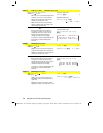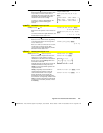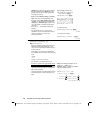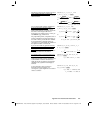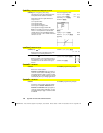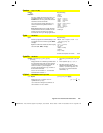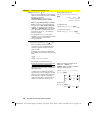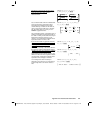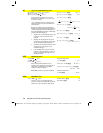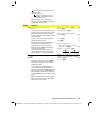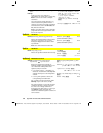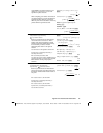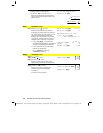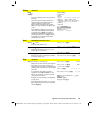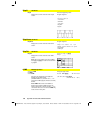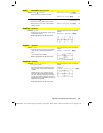
432 Appendix A: Functions and Instructions
8992APPA.DOC TI-89 / TI-92 Plus: Appendix A (US English) Susan Gullord Revised: 02/23/01 1:48 PM Printed: 02/23/01 2:21 PM Page 432 of 132
d()
2=
key or MATH/Calculus menu
d
(
expression1
,
var
[,
order
]
)
⇒
expression
d
(
list1,var
[,
order
]
)
⇒
list
d
(
matrix1,var
[,
order
]
)
⇒
matrix
Returns the first derivative of
expression1
with respect to variable
var
.
expression1
can
be a list or a matrix.
order
, if included, must be an integer. If the
order is less than zero, the result will be an
anti-derivative.
d
()
does not follow the normal evaluation
mechanism of fully simplifying its arguments
and then applying the function definition to
these fully simplified arguments. Instead,
d
()
performs the following steps:
1. Simplify the second argument only to the
extent that it does not lead to a non-
variable.
2. Simplify the first argument only to the
extent that it does recall any stored value
for the variable determined by step 1.
3. Determine the symbolic derivative of the
result of step 2 with respect to the
variable from step 1.
4. If the variable from step 1 has a stored
value or a value specified by a “with” (|)
operator,
substitute that value into the
result from step 3.
d
(3x^3
ì
x+7,x)
¸
9x
ñì
1
d
(3x^3
ì
x+7,x,2)
¸
18
ø
x
d
(f(x)
ù
g(x),x)
¸
d
d
x
(f(x))
ø
g(x)
+
d
d
x
(g(x))
ø
f(x)
d
(sin(f(x)),x)
¸
cos(f(x))
d
d
x
(f(x))
d
(x^3,x)|x=5
¸
75
d
(
d
(x^2
ù
y^3,x),y)
¸
6
ø
y
ñø
x
d
(x^2,x,
ë
1)
¸
x
ò
3
d
({x^2,x^3,x^4},x)
¸
{
2
ø
x 3
ø
x
ñ
4
ø
x
ò
}
4
DD
MATH/Angle menu
number
4
DD
⇒
value
list1
4
DD
⇒
list
matrix1
4
DD
⇒
matrix
Returns the decimal equivalent of the
argument. The argument is a number, list, or
matrix that is interpreted by the Mode
setting in radians or degrees.
Note:
4
DD
can also accept input in radians.
In Degree angle mode:
1.5
ó
4DD
¸
1.5
ó
45
ó
22'14.3"
4DD
¸
45.370
...
ó
{45
ó
22'14.3",60
ó
0'0"}
4DD
¸
{45.370
...
60}¡
In Radian angle mode:
1.5
4DD
¸
85.9
ó
4
Dec
MATH/Base menu
integer1
4
Dec
⇒
integer
Converts
integer1
to a decimal (base 10)
number. A binary or hexadecimal entry must
always have a 0b or 0h prefix, respectively.
0b10011
4Dec
¸
19
0h1F
4Dec
¸
31



